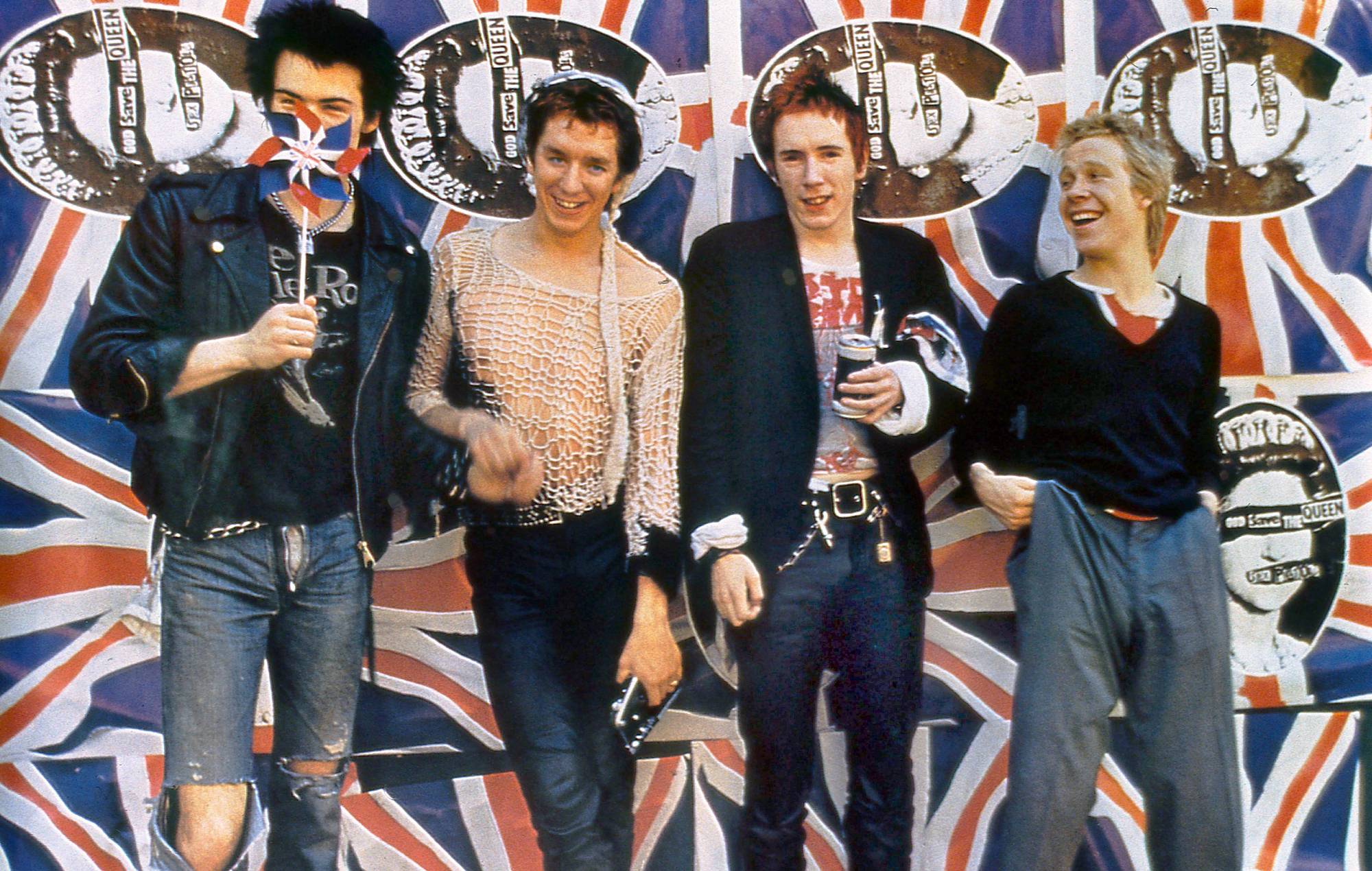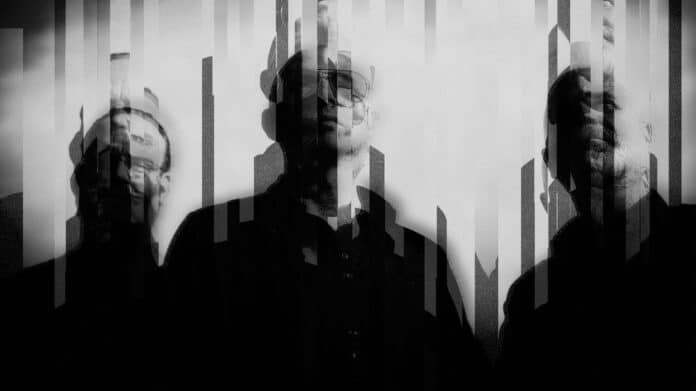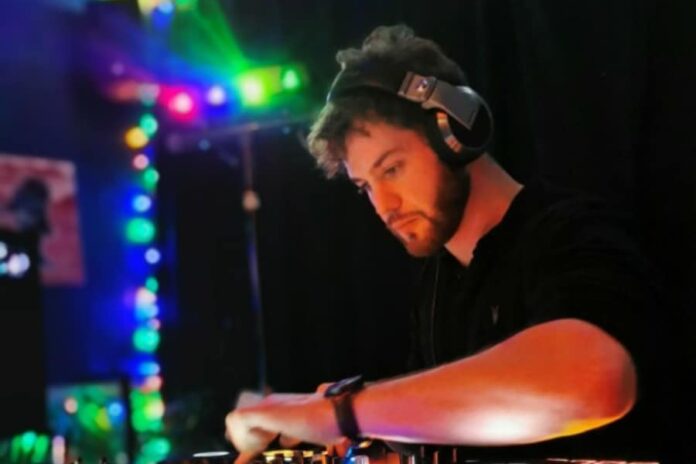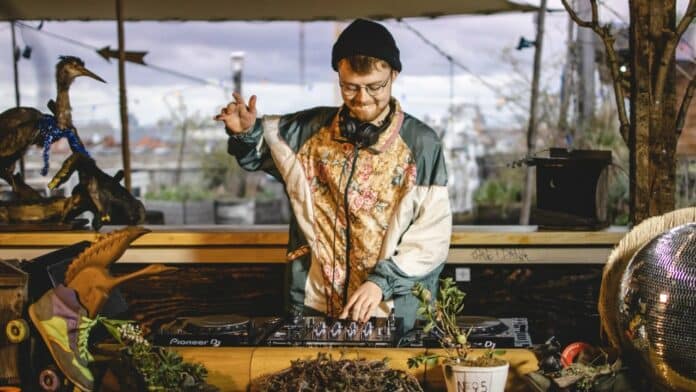
Sex Pistols: “‘God Save The Queen’ wasn’t really about calling the Queen a moron”
Forty-six years later, and from a distance of 5,000 miles, Steve Jones can still give you the Grundys. “Ah, whatever,” the Sex Pistols’ acerbic fulcrum snorts down the phone from Los Angeles as talk turns to former frontman John Lydon’s recent below-the-belt comment that the rest of the band were merely “dead wood”. “I don’t care.”
He stops well short of giving us a “fucking rotter”, but the withering resignation in the guitarist’s voice matches the one that made the viewers of Thames Television’s Today programme drop their teatime chips in December 1976. It’s Pistols-mania all over again as a new 20-track compilation of their most famous songs, ‘The Original Recordings’, coincides with Danny Boyle’s forthcoming FX biopic series Pistol. Yet the drama around the series has almost been as bilious and heated as the history of UK punk’s celebrated originators itself.
Having endured a bitter court case in 2021 – in which he and drummer Paul Cook won their challenge against Lydon’s veto of the use of their music in the series, leaving Lydon claiming “financial ruin” and calling his ex-bandmates “evil” – Jones has no inclination to ignite a war of words with Lydon in the press.
“It was very stressful, that court case,” he says. “Didn’t want it to happen; it was the last thing that I wanted.” What were relations with John like beforehand? “I never really communicated with John at all; it was all just business stuff. It was approving stuff here and there, but there was no talking. Even though we’ve both lived in Los Angeles for years, about the same time as each other – I’ve been here about 36 years and I think he’s close to that – we just never talk.”
Steve believes Lydon might have been riled by the angle and focus of the show. Pistol, as vivid a reconstruction of the punk era as has yet made it to screen, is based around Jones’s autobiography Lonely Boy and places Steve as the central protagonist. “It’s just my version,” he says. “It’s not like, ‘This is the truth and everything else ain’t.’ I was a bit nervous, thinking, ‘Oh, fuck – what is this gonna be like, Carry On Up The Fucking Pistols? But it’s not.”
Originally planned as a film but expanded into six hour-long streaming episodes, Pistol traces Steve’s errant youth as the “Phantom of the Odeon”, stealing amps and instruments from bands playing at the Hammersmith Odeon (including Bowie’s legendary final Ziggy Stardust gig in 1973) and pilfering from Vivienne Westwood’s SEX shop to his infiltration of the King’s Road fashion cognoscenti and creation of the crude yet powerful punk blueprint.
“[John] wasn’t happy about us doing this about my story,” he says. “He probably made up in his mind what it was gonna be like and he wasn’t interested. I said it in the court thing, if the shoe was on the other foot, I wouldn’t have had no problem. If he had done his story and someone wanted to do it, I don’t think any of us would have had a problem. We’d have been happy.”
Lydon called Pistol a “middle-class fantasy”, and it certainly frames the Pistols as a bunch of aimless working-class oiks being orchestrated into history by art school Svengali Malcolm McLaren. On a separate call, Cook admits to not being too happy with this portrayal of events himself.
“One of my bugbears with The Pistols [is] the way that everyone thinks Malcolm manipulated the band and we were his puppets,” he says. “That’s totally not the truth; that would never have happened. It does perpetuate that a bit in the series, which is one of the points of it that I didn’t like, I must admit. But that’s the story – a lot of people believe it; a lot of people know it’s not true.”
Of the middle-class barb, Jones says: “[John] hasn’t seen it so he shouldn’t be saying that, I don’t think. I think he gets portrayed very good in the show… I don’t know what the truth is, to be honest with you. I don’t want to get nit-picky. Those days are over for me.”
But what days to revisit. From a riot at the debut Pistols gig at Central St. Martin’s School Of Art in 1975 to the public fury over their filth-mouthed Grundy appearance and the explosive, violent and self-destructive Sid Vicious era, Boyle delivers a visceral, if somewhat screen-dramatized, version of the Pistols story.
“He captures the chaos and the mood of the time,” says Cook. “The mood of the country at the time in the late-‘70s, when it was quite dismal sometimes. All the live stuff he’s done with the band playing are excellent… What people have got to realise about this is that this is Danny Boyle’s version of Steve Jones’s book. There’s a lot of dramatization and there’s quite a lot of artistic licencing going on, [but] it generally is the story of Steve Jones’s book and overall he’s done a very good job.”
“The acting, I think, is brilliant,” says Steve. “Obviously not everyone looks identical to the original but it’s not a documentary, it’s a show. I love the guy who plays John [Anson Boon, who dropped to a suitably scrawny and angular eight stone for the role]. I love the guy who plays Malcolm [The Queen’s Gambit’s Thomas Brodie-Sangster] and he did a good job the guy who played me, Toby [Wallace].
“You’ve got to make it entertaining. You’ve got to look at the big picture, not in this tiny little world where everything happened in real-time and identical. It’s very heartfelt, as well – it’s not just like a joke. It’s got all the elements: sad parts, humorous, different relationships. It’s great and I’m well happy. I’m sure there’s gonna be a bunch of people that are gonna tear it to pieces, but that’s OK.”

Besides Jacob Slater, a real-life drummer who plays Cook, the actors portraying the band had to learn their instruments for performance scenes – very much ‘here’s a chord, here’s another one – now make a film’. Wallace also spent some time in LA with Steve to better capture his personality – did the Pistol give the actor any specific advice?
“I gave him some guitar lessons; I showed him how to stand and whatnot. He picked it up pretty quickly… I said, ‘Just look as good-looking as you can. I know it’s impossible, but try your hardest’.”
The pivotal moments of this cultural Year Zero are vividly reconstructed – the scene in which Lydon auditions for the band by wailing along to ‘Eighteen’ by Alice Cooper on the SEX shop jukebox, inventing his own lyrics full of the bile and frustration of ‘70s youth, feels genuinely untamed, and Jones’ learning to play the guitar over five sleepless amphetamine nights is given Boyle’s trademark narcotic rush. But even for those of us familiar with the story, there are revelations. Jones’s key love interest, for instance, is Chrissie Hynde [Sydney Chandler], SEX receptionist toying with Jones’s affections behind the back of boyfriend, Nick Kent of NME infamy.
“I think they’ve over-elaborated on that a bit,” Cook says, “that’s artistic licence. I sat here with Chrissie and watched it, and she was OK with it, but it made out a bit more about the connection between them two than was the reality. They were very close, but not as close as they’re making out in the series. Danny was gonna make of the story what he was gonna make of it.”
Then there are the depictions of Steve’s childhood abuse at the hands of his stepfather. “I didn’t find out about this until much later on,” says Cook. “We grew up together as kids, and he kept that under wraps. He didn’t say much about all that side; I knew that he hated his stepdad but I didn’t realise why. It wasn’t until much later when he started to doing these self-help therapy kind of [things] and it all came out then. Although I was really close to him, he really was a secretive kind of guy; he didn’t really like to share all that stuff.
“So it was a shock when I found out. It kind of made me understand it a bit better, what it was like when he was a kid. He didn’t want to go home. He’d always be round my house; he tended to keep away from home.”
“John Lydon and I have both lived in Los Angeles for years, but we never talk” – Steve Jones
Says Steve: “I think it shows that, on the outside, it all seemed like a laugh, but on the inside there was this fucking confused young man. A lot of people forget [that] from the beginning to the end we were all young, and I can’t speak for everyone else but I had no idea how to conduct myself, how to live. 19-, 20-, 21-years-old, you don’t know shit, and I think that comes across pretty accurate, as far as me.”
That Boyle took on the project came as a bolt from the blue to the Pistols. “There really wasn’t any bites,” Steve recalls. “There was interest from certain people but Danny Boyle just grabbed it by the balls. I couldn’t believe it, to be honest with you. We were trying to get someone good but I didn’t think we’d get him.” What was his pitch? “He said that I’m like the engine of the Sex Pistols and he liked that perspective of it – my angle of it.”
Paul explains: “Danny himself was very influenced by the punks and it was perfect, really. He did a great job. Who would have thought, 45 years later, an Oscar-winning director would be doing a film from the story of Steve Jones’s book, a ragamuffin from Shepherd’s Bush – a local boy made good who ended up making history along the way? Everyone knows the Sid and John story; they’re the main characters in the band, the two iconic figures.
“I thought it was great to get Steve’s side because he was the true spirit of the Pistols, at the end of the day. Sid had the look and the attitude [and] John had the verbal attack, but Steve was the true spirit of the band. It kind of all started and revolved around him.”
A particularly poignant element of Pistol is Maisie Williams’ portrayal of punk queen Jordan, who died in April, aged 66. “She was a character,” Steve says. “My vision of her is walking down the King’s Road and everyone would fucking stare at her and I’d be embarrassed, like, ‘Oh god, can’t we get in the shop quick – let’s run to the shop!’ She just had massive balls, pardon the pun. She loved to be outrageous – she lived for it, to shock people.”
Riotous and spittle-drenched as it is, Pistol should act as an in-yer-face antidote to the Sex Pistols’ gradual slide into the rock establishment’s history books. This month they’re to be included the British Pop Archive, Manchester University’s collection of major pop culture artefacts. “It makes sense,” says Steve. “We were an important band: I understand all that, for sure. Do you get a statue?”
But their true legacy is still alive and kicking in the sprawling, increasingly inclusive diaspora of the modern punk scene, from Bob Vylan and Nova Twins to the sensitive punk of IDLES. Both Steve and Paul sing the praises of the Bristol barnstormers, even though Steve admits to being more into Steely Dan than the contemporary punk he inspired.
“It’s funny, when you get older, if you let your musical tastes take over as opposed to feeling like you’ve got to listen to what you think people think you should be listening to,” he says. “I’m all about pop and good songs; I don’t care who does them. I’m not interested in just crash-bang-wallop. Sometimes, not a lot.”
“I’m aware of [modern punk],” says Paul, a regular NME Radio listener for the occasional Pistols tune. “Punk has so many tentacles now; it’s veered off in so many directions. I do try to keep my ear to the ground and listen to stuff, but is there an out-and-out punk band right now? I don’t know if there’s gonna be any bands screaming out of the estates anymore. Spiky haired, snotty kids causing uproar. I wish there were but who knows… The times we live in, bands have got to be a lot more sensitive to what they say, which is unfortunate for them because put one word wrong or one song wrong and you’re cancelled, I would imagine.”
“Everyone thinks we were Malcom McLaren’s puppets. That’s not the truth” – Paul Cook
So says a member of the band that really was cancelled back in ’77, when Radio 1 wouldn’t allow ‘God Save The Queen’ to be declared the UK’s Number One single (though it topped the much cooler NME chart). The song gets a 40th anniversary reissue this year, in an age once more brimming with anti-Royal sentiment – would it still get banned?
“I doubt it,” says Paul. “It’d need to be something a lot more shocking these days. When we released ‘God Save The Queen’ originally, like John said, it wasn’t really about calling the Queen a moron – as you know, in the lyrics we’re not calling the Queen a moron. John was just commenting on what was going on at the time. Like John said, you don’t write a song like that because you hate the Queen, but because you love the British people, and he is spot on there.”
In a world under constant threat of fascist regimes, though, the anger and energy of the Sex Pistols has rarely felt so essential. Pistol might be a muzzle-flash from the past, but the bang still reverberates.
– ‘The Original Recordings’ is released on May 27 by UMG. Pistol airs on Disney+ on May 31





